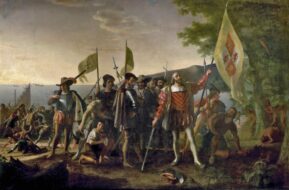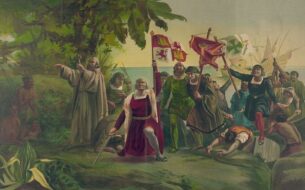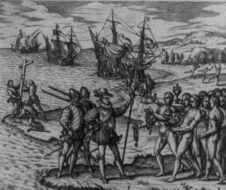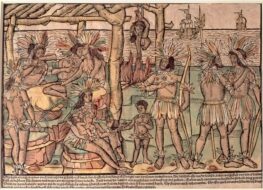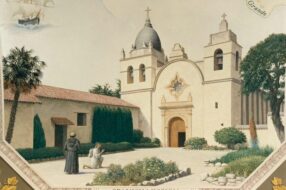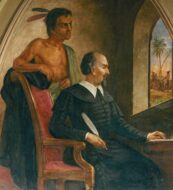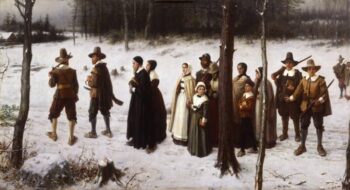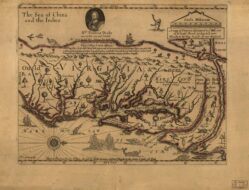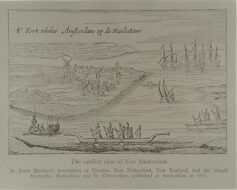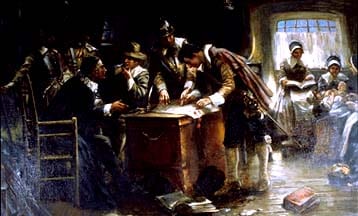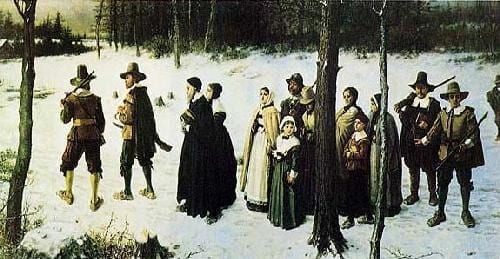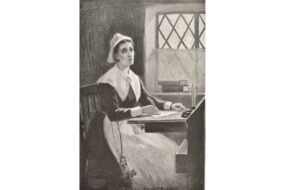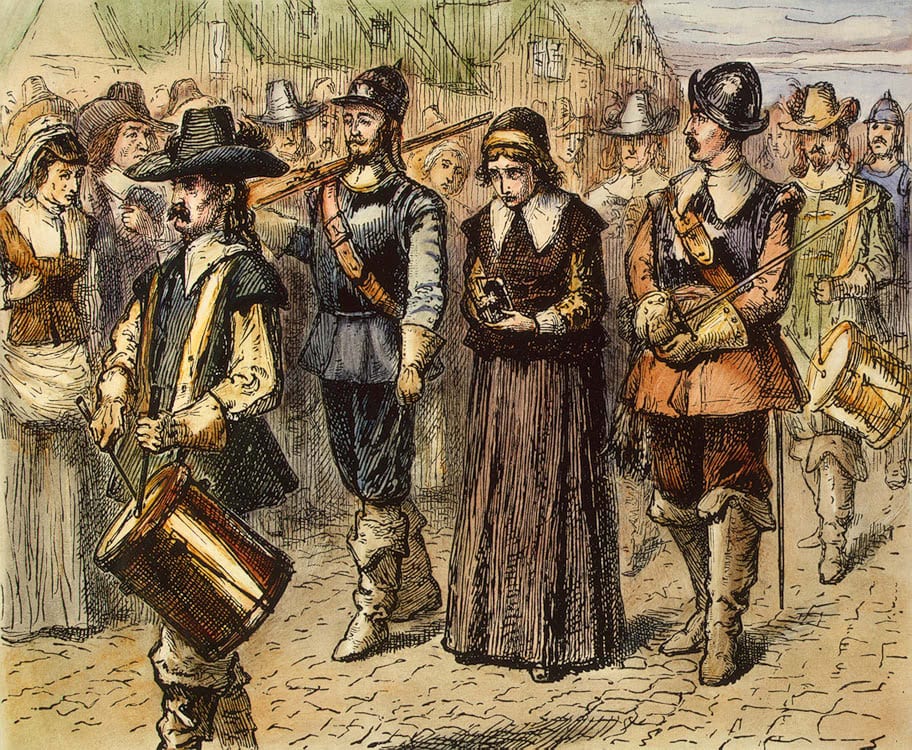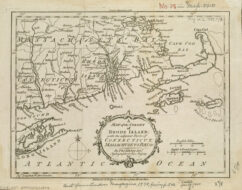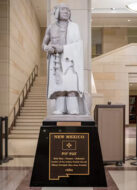
No related resources
Introduction
The 1701 Pennsylvania Charter of Privileges was the last and among the most famous of all colonial constitutions. Approved by William Penn, to whom King Charles had given the colony, the charter of 1701 replaced the original 1682 charter as the fundamental law of the colony. The new charter, which remained in force for the next 75 years, was designed to be more “suitable to the present Circumstances of the Inhabitants.” The most important structural changes from the 1682 charter were provisions for annual county-based elections, a unicameral general assembly, and an enhanced political role for the legislature. Note that freedom of conscience was also protected. The free exercise of religion clause was placed first, that clause was permanent, and religious qualification for holding office was limited to belief in Jesus Christ. Finally, the charter included the right of criminals to have “the same Privileges of Witness and Council as their prosecutors.”
Source: F.N. Thorpe, ed., The Federal and State Constitutions, Colonial Charters, and Other Organic Laws…,7 vols. (Washington, DC: Government Printing Office,1909), 5:3076–81
. . . Know ye therefore, That for the further Well-being and good Government of the said Province, and Territories; and in Pursuance of the Rights and Powers before-mentioned, I the said William Penn do declare, grant and confirm, unto all the Freemen, Planters and Adventurers, and other Inhabitants of this Province and Territories, these following Liberties, Franchises and Privileges, so far as in me lieth, to be held, enjoyed and kept, by the Freemen, Planters and Adventurers, and other Inhabitants of and in the said Province and Territories thereunto annexed, for ever.
I
Because no People can be truly happy, though under the greatest Enjoyment of Civil Liberties, if abridged of the Freedom of their Consciences, as to their Religious Profession and Worship: And Almighty God being the only Lord of Conscience, Father of Lights and Spirits; and the Author as well as Object of all divine Knowledge, Faith and Worship, who only doth enlighten the Minds, and persuade and convince the Understandings of People, I do hereby grant and declare, That no Person or Persons, inhabiting in this Province or Territories, who shall confess and acknowledge One almighty God, the Creator, Upholder and Ruler of the World; and profess him or themselves obliged to live quietly under the Civil Government, shall be in any Case molested or prejudiced, in his or their Person or Estate, because of his or their conscientious Persuasion or Practice, nor be compelled to frequent or maintain any religious Worship, Place or Ministry, contrary to his or their Mind, or to do or suffer any other Act or Thing, contrary to their religious Persuasion.
And that all Persons who also profess to believe in Jesus Christ, the Savior of the World, shall be capable (notwithstanding their other Persuasions and Practices in Point of Conscience and Religion) to serve this Government in any Capacity, both legislatively and executively he or they solemnly promising, when lawfully required, Allegiance to the King as Sovereign, and Fidelity to the Proprietary and Governor, and taking the Attests as now established by the Law made at New-Castle, in the Year One Thousand and Seven Hundred, entitled, An Act directing the Attests of several Officers and Ministers, as now amended and confirmed this present Assembly.[1]
II
For the well governing of this Province and Territories, there shall be an Assembly yearly chosen, by the Freemen thereof, to consist of Four Persons out of each County, of most Note for Virtue, Wisdom and Ability, (or of a greater number at any Time, as the Governor and Assembly shall agree) upon the First Day of October for ever; and shall sit on the Fourteenth Day of the same Month, at Philadelphia, unless the Governor and Council for the Time being, shall see Cause to appoint another Place within the said Province or Territories: Which Assembly shall have the Power to choose a Speaker and other their Officers; and shall be Judges of the Qualifications and Elections of their own Members; sit upon their own Adjournments; appoint Committees; prepare Bills in order to pass into Laws; impeach Criminals, and redress Grievances; and shall have all other Powers and Privileges of an Assembly, according to the Rights of the free-born Subjects of England, and as is usual in any of the King’s Plantations in America.
And if any County or Counties, shall refuse or neglect to choose their respective Representatives as aforesaid, or if chosen, do not meet to serve in Assembly, those who are so chosen and met, shall have the full Power of an Assembly, in as ample Manner as if all the Representatives had been chosen and met, provided they are not less than Two Thirds of the whole Number that ought to meet.
And that the Qualifications of Electors and Elected, and all other Matters and Things related to Elections of Representatives to serve in Assemblies, though not herein particularly expressed, shall be and remain as by a Law of this Government, made at New-Castle in the Year One Thousand Seven Hundred, entitled, An Act to ascertain the Number of Members of Assembly, and to regulate the Elections.
III
That the Freemen in each respective County, at the Time and Place of Meeting for Electing their Representatives to serve in Assembly may as often as there be Occasion, choose a double Number of Persons to present to the Governor for Sheriffs and Coroners to serve for Three Years, if so long they behave themselves well; out of which respective Elections and Presentments,[2]the Governor shall nominate and commissionate one for each of the said Offices, the Third Day after such Presentment, or else the First named in such Presentment, for each Office as aforesaid, shall stand and serve in that Office for the Time before respectively limited; and in Case of Death or Default, such Vacancies shall be supplied by the Governor, to serve to the End of the said Term.
Provided always, That if the said Freemen shall at any Time neglect or decline to choose a Person or Persons for either or both the aforesaid Offices, then and in such Case, the Persons that are or shall be in the respective Offices of Sheriffs or Coroners, at the Time of Election, shall remain therein, until they shall be removed by another Election as aforesaid.
And that the Justices of the respective Counties shall or may nominate and present to the Governor Three Persons, to serve for Clerk of the Peace for the said County, when there is a Vacancy, one of which the Governor shall commissionate within Ten Days after such Presentment, or else the First nominated shall serve in the said Office during good Behavior.
IV
That the Laws of this Government shall be in this Style, viz. By the Governor, with the Consent and Approbation of the Freemen in General Assembly met; and shall be, after Confirmation by the Governor, forthwith recorded in the Rolls Office,[3] and kept at Philadelphia, unless the Governor and Assembly shall agree to appoint another Place.
V
That all Criminals shall have the same Privileges of Witnesses and Council as their Prosecutors.
VI
That no Person or Persons shall or may, at any Time hereafter, be obliged to answer any Complaint, Matter or Thing whatsoever, relating to Property, before the Governor and Council, or in any other Place, but in ordinary Course of Justice, unless Appeals thereunto shall be hereafter by law appointed.
VII
That no Person within this Government, shall be licensed by the Governor to keep an Ordinary,[4] Tavern or House of Public Entertainment, but such who are first recommended to him, under the Hands of the Justices of the respective Counties, signed in open Court; which Justices are and shall be hereby empowered, to suppress and forbid any Person, keeping such Public-House[5]as aforesaid, upon their Misbehavior, on such Penalties as the Law doth or shall direct; and to recommend others from time to time, as they shall see Occasion.
VIII
If any Person, through Temptation or Melancholy, shall destroy himself; his Estate, real and personal, shall notwithstanding descend to his Wife and Children, or Relations, as if he had died a natural Death; and if any Person shall be destroyed or killed by Casualty or Accident, there shall be no Forfeiture to the Governor by reason thereof.
And no Act, Law or Ordinance whatsoever, shall at any Time hereafter, be made or done, to alter, change or diminish the Form or Effect of this Charter, or of any Part or Clause therein, contrary to the true Intent and Meaning thereof, without the Consent of the Governor for the Time being, and Six Parts of Seven of the Assembly met.
But because the Happiness of Mankind depends so much upon the Enjoying of Liberty of their Consciences as aforesaid, I do hereby solemnly declare, promise and grant, for me, my Heirs and Assigns, That the First Article of this Charter relating to Liberty of Conscience, and every Part and Clause therein, according to the true Intent and Meaning thereof, shall be kept and remain, without any Alteration, inviolably for ever.
And lastly, I the said William Penn, Proprietary and Governor of the Province of Pennsylvania, and Territories thereunto belonging, for myself, my Heirs and Assigns, have solemnly declared, granted and confirmed, and do hereby solemnly declare, grant and confirm, That neither I, my Heirs or Assigns, shall procure or do any Thing or Things whereby the Liberties in this Charter contained and expressed, nor any Part thereof, shall be infringed or broken: And if any thing shall be procured or done, by any Person or Persons, contrary to these Presents, it shall be held of no Force or Effect. . . .
William Penn
This Charter of Privileges being distinctly read in Assembly; and the whole and every Part thereof, being approved of and agreed to, by us, we do thankfully receive the same from our Proprietary and Governor, at Philadelphia, this Twenty-Eighth Day of October, One Thousand Seven Hundred and One. Signed on Behalf, and by Order of the Assembly.
per Joseph Growdon, Speaker
Edward Shippen, Griffith Owen,
Phineas Pemberton, Caleb Pusey,
Samuel Carpenter, Thomas Story,
Proprietary and Governor’s Council
- 1. The capital of Delaware territory also belonged to Penn. Attests were oaths of office.
- 2. presenting something or someone – in this case, those elected
- 3. a government office where property or voting records are kept
- 4. an inn providing meals
- 5. a business licensed to sell alcoholic drinks, commonly known as a “pub”

Conversation-based seminars for collegial PD, one-day and multi-day seminars, graduate credit seminars (MA degree), online and in-person.
